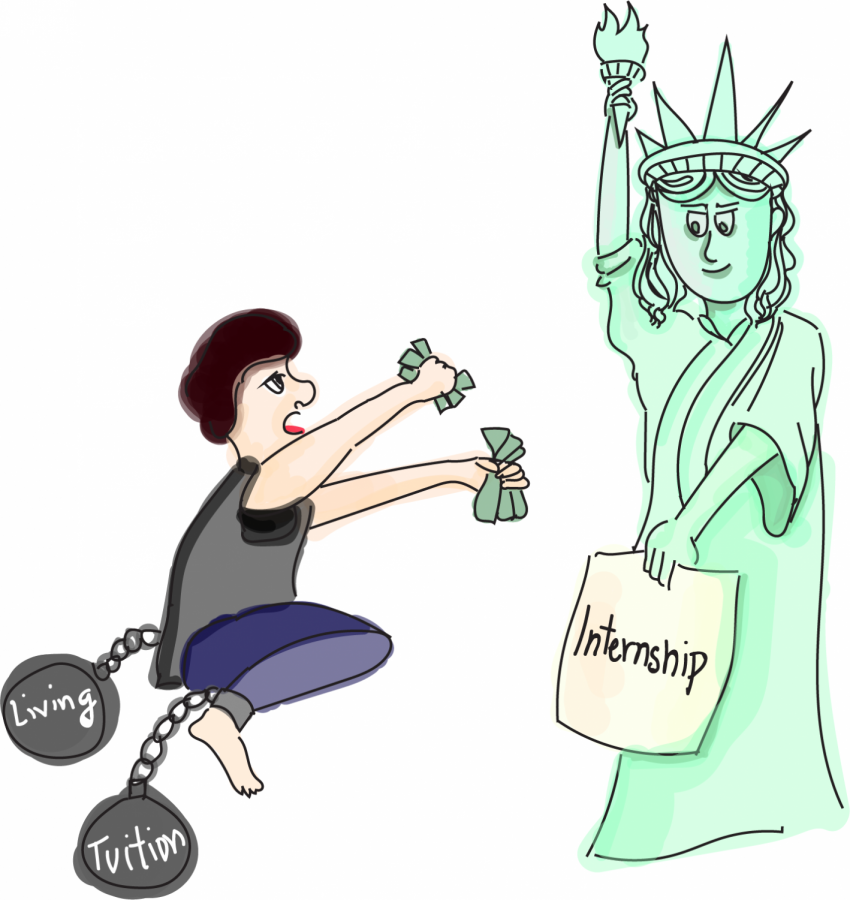A call to compensate interns, bridge gap
Apr 23, 2018
The U.S. Department of Labor has implemented yet another obstacle for middle- and working-class students to rise in the ranks of social mobility. As if it wasn’t already costly enough for rising juniors and seniors to complete an internship, new guidelines will make this career necessity nearly bankrupting.
This update, implemented in January, essentially says if an intern’s work or training benefits them in an educational manner, they will not be considered an “employee” of the company and thus do not deserve compensation.
It costs, on average, $6,200 in housing, transportation, food and other fees for a student to complete a summer internship. Allow this number to rapidly increase for opportunity-dense hubs — like San Francisco and New York City — which have some of the highest costs of living in the United States. This means even if the internship is paid, you will likely barely break even. Thinking about getting a side job? The average intern works full-time at 40 hours per week.
Someone may advise that you don’t need a co-op, fellowship or internship. Just work in retail, at a fast-food establishment or perhaps the local swine farm. There’s no doubt these are invaluable experiences that will teach you people skills and can introduce you to interesting contacts who help grow your network. You may even be able to spin these experiences to look relevant to your desired field on a resume. However, a single trip to the Career Center or a guest professional development lecturer will tell you internship experience is a necessity.
Whether it’s the pressure from University faculty, intrinsic motivation or the fact that everyone else seems to have one, the internship search is both a financial and emotional burden.
Get The Daily Illini in your inbox!
According to 2015 research conducted by the Center on Education and the Workforce at Georgetown University, 63 percent of students who had a paid internship landed a job at least six months after graduation. Only 35 percent of students who didn’t complete an internship could say the same. The students who completed paid internships also earned a higher average salary.
With these guidelines, the only students who will be able to afford this experience are the ones who already have the societal advantages of a high-income family to support their efforts. This does not only mean money, but also the connections to help their children land a highly coveted internship or simply the resources and education throughout their lives to set them up to succeed in the “right” ways.
So, if you have several grand to spend on adding a few lines to your resume, that’s incredible, but to a student whose family can’t afford it, this update is another way of saying, “We’re simply helping the rich get richer.”
Jamie is a sophomore in Media.






